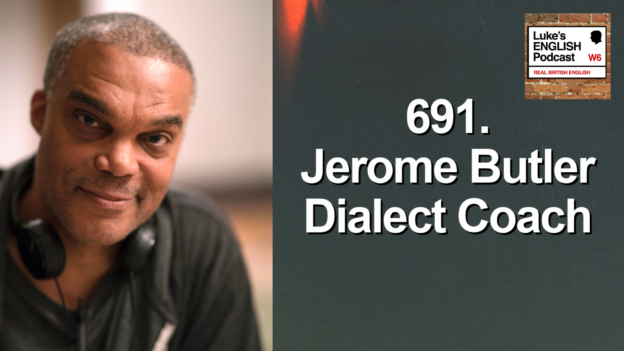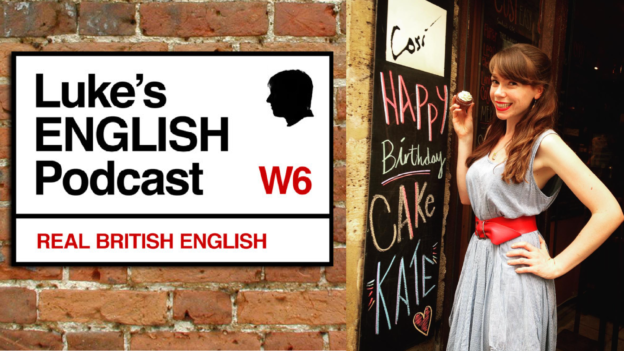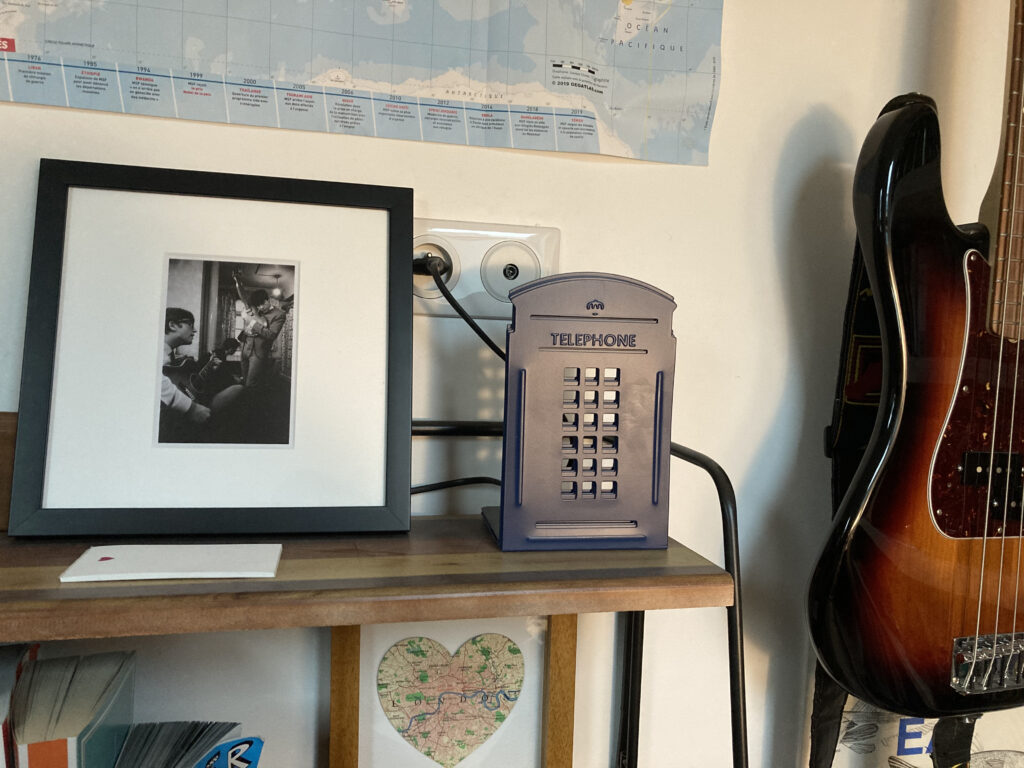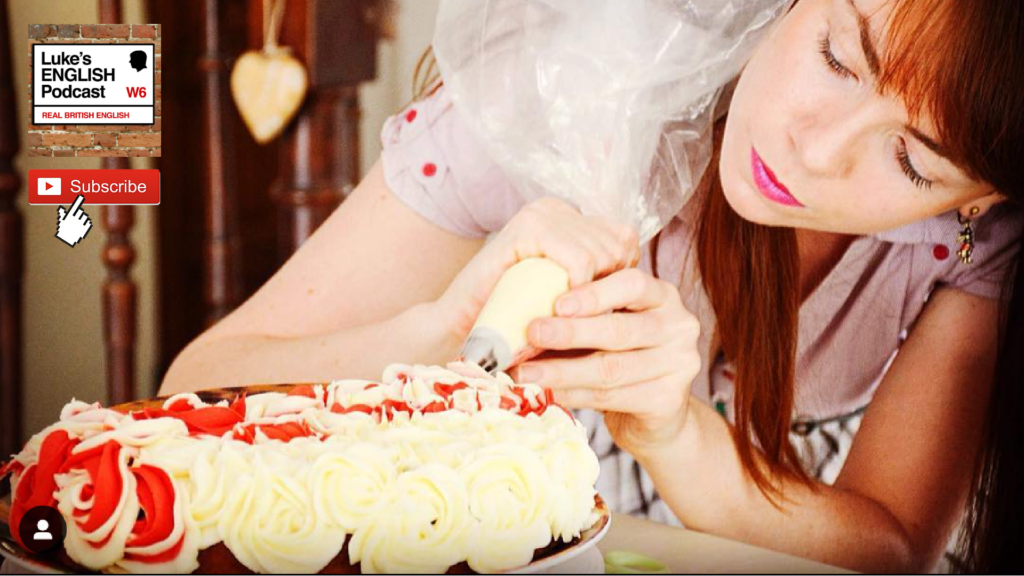Chatting to Lucy Earl from the English with Lucy channel on YouTube.
[DOWNLOAD]
Introduction & Ending Transcripts
Hello everyone, How are you doing today?
I hope you are fine and completely ready to listen to this new episode of my podcast.
A couple of things before we get started.
WISBOLEP Voting – www.teacherluke.co.uk/wisbolep
Voting is currently underway in the WISBOLEP competition, as you may know if you have heard the previous episode of this podcast. If you haven’t voted yet, head over to teacherluke.co.uk/wisbolep to hear all the entries and to choose who you think should be interviewed in an episode of the podcast. Find the voting form, tap the names of the people you want to vote for and then click vote. The voting closes on 6 December at midnight CET.
LEP Premium 27 & 28 – www.teacherluke.co.uk/premiuminfo
Also, hello premium subscribers – you might have seen that I’ve uploaded parts 1 & 2 of premium series 27. P27 is an error correction series. It’ll be an 8-part series in total. Parts 1 & 2 are available for you now. In that series I’m not just correcting some common errors but using those errors as a starting point to teach various bits of vocabulary, grammar and pronunciation. Check it out in the LEP app or on the website. Premium 27 parts 1 & 2 are already available for you.
Also – coming very soon to LEP Premium (and possibly even available now, depending on when you listen to this) – coming soon is an episode with over 50 phrases from the conversation you’re going to hear in this episode. I’ve picked out over 50 things which I think that you might miss or that you might not know. It will help you to understand this conversation a lot more and will help you use it to expand your English beyond the benefits of only listening to it.
To find out how to access the premium episodes and to get all the relevant information about LEP Premium go to teacherluke.co.uk/premiuminfo
A Conversation with Lucy
In this episode you can hear me in conversation with Lucy Earl from the English with Lucy YouTube channel.
Do you know English with Lucy on YouTube?
I’d be surprised if you didn’t. She has to be one of the most famous English teachers on YouTube, certainly one of the most well-known British English teachers on that platform.
Her YouTube channel currently has over 5 million subscribers and that number is growing all the time. The last time I checked it was 4.something and then checking today it says 5.06 million, so she’s doing quite well, isn’t she?
Yes, it is a huge success and earlier this year Lucy actually mentioned this podcast in one of her videos and recommended it as a good way to learn English through listening and I thought, “Hello, Lucy knows about LEP, and apparently she likes it. That’s nice. Maybe I should invite her onto the podcast for a bit of a chat.”
So that’s what I did and that’s what you’re going to get here. A friendly chat with Lucy Earl from English with Lucy.
Here is a quick run-down of what comes up in the conversation you are about to hear.
We talk about…
- Our accents and how they change sometimes, depending on who we’re with.
- Lucy’s educational background & university life.
- Learning Spanish and how she managed to get fluent
- Getting recognised, or not getting recognised by people who have seen her videos
- How she got into teaching and how she started her YouTube channel
- Some stories of living and hanging out in London, where she went to university
- What it’s like sharing a flat with lots of other people and the conditions we lived in and things we did when we were students
- The process of making video content and her approaches to managing her time
- The experience of being a content creator at home, including how to stay focused and motivated and avoiding distractions like social media and procrastination in general.
- How organised or disorganised we both are, in various aspects of our lives – including how tidy our bedrooms are.
- Life on the farm (because Lucy lives on a farm these days) and how the weather is so important
- What Lucy plans to do in the future, including some details of a new pronunciation course she has set up.
Spot the moments of humour
As you listen to this I would like you to spot the moments of humour that come up. Maybe you’ll notice them, which is great, but I just want to flag this up as a little thing to focus on. I wonder if you will spot all the humorous moments. Try to listen out for these things.
Self-deprecation —> putting yourself down in order to be modest or not arrogant, perhaps saying things which aren’t really true but saying them just to be humorous and to show that you don’t take yourself too seriously.
Innuendo —> pointing out things that could have a sexual meaning or outright saying things that obviously have a double meaning which is sexual. Basically this means saying things which are rude and sexual but not saying them directly. Just hinting at it, suggesting something that has a sexual meaning, saying something a bit ambiguous that could also be rude if you think about it. This often involves things like the verb “do” which can mean several things including “having sex”.
If you don’t really get what I’m talking about then don’t worry, I will explain it all later in the episode.
But there are a couple of moments of self-deprecation and 4 or 5 specific innuendos to listen out for.
I’ll highlight them more specifically at the end.
Also, there is a video version of this conversation on my youtube channel (just the conversation without my intro and outro). So, if you’d like to watch the two of us speaking, and for example you want to see me blush when at one point Lucy mentions taking off her clothes, then you can. Just go to my channel and check out the video there. Don’t forget to like and subscribe as well, ok guys?Smack that like button. Actually, just clicking it or tapping it is fine. No need to actually smash the like button. You might damage your computer, or phone, or tablet.
Anyway, so I will now let you listen to our chat. Watch out for the things I mentioned, try to keep up and I hope you simply enjoy listening to this conversation with Lucy Earl from English with Lucy. Here we go…
YouTube Version (doesn’t include 25 minutes of intro/ending content)
———
Ending
So, that was my chat with Lucy and it was very nice to actually meet her and chat to her like that, person to person. It’s always lovely to meet people and actually talk to them properly, especially when you only know them from YouTube videos or something.
epiphanylanguagestudios.com – offer code LUKE15
Don’t forget that you can get a 15% discount on all of Lucy’s new pronunciation courses if you use the offer code LUKE15 (that’s l u k e, not l o o k or l u c k, ok?) A little spelling test there – if you fail to spell my name properly, you will not get the 15% discount.
Use the offer code LUKE15 to get 15% off Lucy’s pronunciation courses.
We’re not done yet. I still have plenty of things to say here.
Those moments of humour
I asked you at the beginning to listen out for certain bits of humour – self-deprecating humour and also some innuendos. Did you notice them? They were probably quite obvious, but let’s see.
Innuendos
A reminder of what an innuendo is – it’s a comment which is indirectly rude or sexual. Not a directly sexual comment, but one which is a bit ambiguous and could have a sexual meaning. I talked about this in episode 447 which was all about British humour with Amber Minogue.
Anyway, here are the innuendos in this episode.
Lucy: A language exchange
Luke: were they just exchanging languages or…
~exchanging languages, or exchanging other things – bodily fluids perhaps, or as Lucy pointed out, tongues. Bear in mind that this was in reference to people in their teens or 20s on Erasmus programmes, socialising at infamous nightclubs like Tiger Tiger in London where people typically go to pick people up or get picked up by people and exchanging tongues is quite a normal thing that happens there.
Lucy: Being with a Spanish guy – that is, I’m sad to say, one of the best ways to get fluent in another language… is to shack up with someone!
Luke: Learning by doing, as it’s called.
~Learning by doing. This normally refers to learning a skill by actually doing it, or perhaps learning English by doing something in that language, such as learning English by doing a cooking course in English. Or learning to cook by actually cooking rather than just being shown how to do it by a cooking instructor.
But “doing” can also mean having sex. Not always of course. It depends heavily on the context. Don’t be scared of the word do. If you said “I’m doing my homework” I don’t think anyone would misunderstand that. It only becomes an innuendo in certain contexts, like this one. Getting into a relationship with someone, and no-doubt getting into bed with them too, can be a great way to learn a language. Learning by doing. You see. OK. I’ve made that joke on the podcast a few times before. Have you ever noticed it before?
Lucy also mentioned the phrase “to shack up with someone”. This is not “to shag someone”, although it sounded like that. To shag someone means to have sex with them. It’s a fairly rude slang expression, which I don’t count as a proper swear word by the way.
Anyway, that’s not what Lucy said. What she said was, “One of the best ways to get fluent is to shack up with someone”. This means to move in with them. It’s quite an informal expression. A shack means a place to live, like a house (specifically it’s a sort of little house made of wood or something) but the point is “to shack up with someone” means to move in with someone and live with them. But the suggestion is also that this means being in a relationship with them too, and the suggestion is also that you’re sleeping with them, right?
Lucy: I have a terrible habit of removing my clothing… Oh, and putting it on the floor.
Luke: Not just removing your clothes.
Lucy: Well that’s another habit, but I’ve had therapy for that. [I don’t think she has actually had therapy for this – she’s just being self-deprecating so she doesn’t sound like an exhibitionist]
Luke: (Talking about shepherds and saying something like “You don’t have sheep on your farm though do you?”)
Lucy: I think his dad did do sheep at one point. I think everyone’s done sheep at one point. You’re not a real farmer unless you’ve tried sheep.
Luke: You mean breeding sheep. Sheep-on-sheep action. Not anything else.
Lucy: Oh lord no!
Luke: You did talk about doing sheep. I felt compelled to highlight the innuendo. I’m very good at digging myself into holes here.
Lucy: I think that’s what the farmers were doing.
Self-deprecating humour
My podcast is massive. It’s got global reach. It’s very influential. I’m working on Vladimir Putin, subliminally. [I’m not really] Sarcasm + self-deprecation
50+ bits of language highlighted in Premium 28, coming soon…
There may be other specifics that you didn’t notice or didn’t understand in this conversation. If you want to make sure you got it all, and learn loads of English from this episode, check out P28 which is either coming very soon or available now, depending on when you listen to this. I’ve got about 50 extracts from this conversation, full of target language for you to pick up and add to your active vocabulary. Check it out. That’s Premium episode 28 in the LEP Premium subscription, available for premium subscribers now or at least very very soon. To find out more about the premium subscription go to www.teacherluke.co.uk/premiuminfo
Song on the Guitar
Some Might Say by Oasis – chords & lyrics here https://www.e-chords.com/chords/oasis/some-might-say














